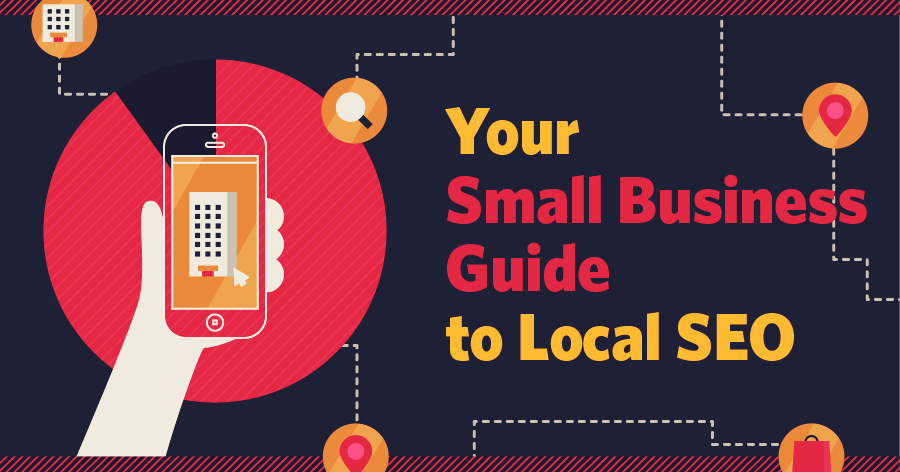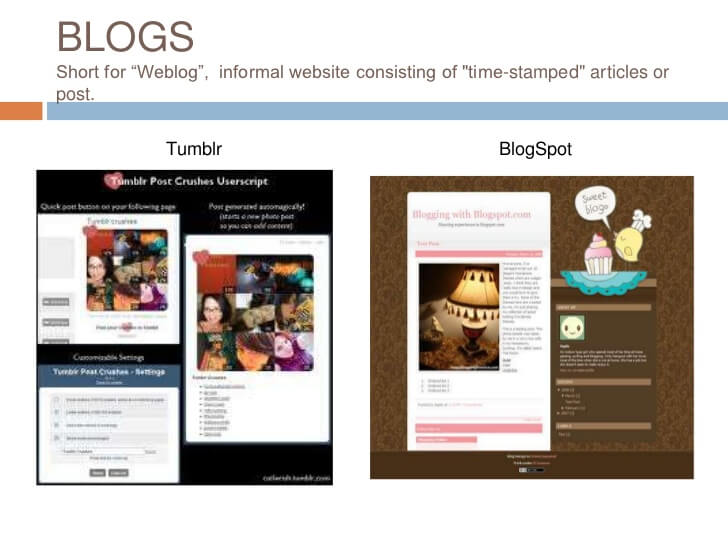Before we get deeper into local SEO, I want to take a minute to share a high-level overview of how local SEO works. Understanding what’s going on behind the scenes will be valuable as you adapt the material you’re learning to your own specific business needs. When you enter a term into Google and hit Submit, a lot happens simultaneously.
Google is going to check to see if it has any historical information on you, what searches you may have conducted previously, and any cookies that you’re dragging along. Beyond that, they’ll receive data on your physical location, which can come from your IP address, the public network you’re connected to, or even the true GPS data from a mobile device if you’re providing it.
Now, that’s a fairly simple explanation but it’s more than sufficient to get a picture of what’s going on behind the scenes. So, now that Google has that information, they’re going to work to understand what it is you’ve searched for. There’s a few types of local searches: contextual, inferred, and intent.
Contextual is really easy for Google to understand. In this case, a user provides Google with a specific location and that location is identical to where the user currently is. So if I’m somewhere in Los Angeles, and I conduct a search for the term cupcake bakery Los Angeles, Google has a very clear understanding of what I want.
They have the complete context. The next type of search is an inferred search. In this case, if I was in Los Angeles and I conducted a search for cupcake bakery Las Vegas, Google has to infer that I’m actually interested in local results from Las Vegas despite the fact I’m currently in Los Angeles. The last type of search is intent, and this is becoming one of the most popular types of searches. As Google gets better and better at understanding the intent of a search, people are less likely to include additional location context.
In this type of search, I’m in Los Angeles, California, and the only thing I type into Google is cupcake bakery. In this case, I may even stretch Google by leaving out the term bakery and instead only using the root keyword cupcakes.
Part of identifying the right local SEO strategy is also identifying what type of search query your target audience is most likely to use. There is potentially a different approach to rising to the top in a contextual query versus an intent query. There’s a lot that goes on to make local SEO work, but understanding the basics will give you the foundation you need to be successful with your implementation.
When someone runs a Google search, they’re actually searching an index that Google has compiled. Google gets this index by crawling the web, link by link. When Google arrives on a website, it crawls all the links on that site, and then follows those links to other sites, where it continues to repeat this process.
The position of your site in Google’s search results is determined based on hundreds of variables, all derived from the content in Google’s index. Some of these factors are specific to a keyword, say how many times it appears on your site, if it appears in the title, if your site includes synonyms of that keyword.
Beyond the keyword, Google is going to look at the quality of your site, how many people link to it, how you’re using your titles, and any similar pages. Another important factor is how easily Google can crawl the site. Is it clear what is most important? Can Google find all the content by following every link on your page?
They may even take into consideration the browsing habits of the users conducting the search. In general, you can improve the rank of your site, by making it something that users will want to use and share. But I know that’s not specific enough, and based on what I shared earlier, hundreds of variables would be a lot to take into consideration when you’re just getting started.
I’ve boiled it down to what I see as the five most influential components to good rank in local SEO. If all you could do was work on these five areas, you’d likely be in pretty good shape. Now we cover these in more detail throughout this course, but let’s touch on them now. The first, is having a high quality Google My Business profile.
When you verify your listing on Google My Business, you’ll gain authenticity, and authority, on the category you’ve selected. You’ve given Google a very strong signal as to who you are and what you’re about. The second, is having really relevant on-page content.
Your Google category is fairly broad. Carrying on the example of cupcake bakeries, if you’ve categorized yourself as a bakery, you need to confirm on your website that you are indeed a bakery, but also introduce the fact, you’re a cupcake bakery. This is where on page cue and optimization is crucial.
Third, is listing your business name, address, and phone number around the web. Authoritative local sites such as the Yellow Pages and Yelp are all beneficial in reaffirming to Google that you are who you say you are.
Fourth, is collecting great links. Google wants to know that people are interested in your site. If you’ve got quality sites linking back to yours, Google is going to take note. The more inbound links that you have, the more popular you probably are. And the fifth component is reviews.
Now I’d argue that Google Reviews are of significant value, but reviews on Yelp and other sites are going to be helpful as well. The reviews should be authentic but we’ll talk more on that later. These five ranking factors are tied together with the theme of consistency.
They’re better together than they are in silos. Make sure that you’ve got consistent information across all of your efforts, to maximize the impact.
To better understand the value of local SEO let’s take a look at how local search results appear under a few different scenarios. Now, I’m going to be using a desktop computer throughout this course, but it’s important to remember, that a majority of these searches are being done from mobile devices.
So, if you’re following along, try using your mobile phone for these same searches and compare them. So, the first thing I am going to do here on Google.com, is search for a cupcake bakery. The first listing we have is a website for a cupcake bakery in Orange County, followed by images for cupcake bakeries, and then a website for a company that’s local to me, here in Santa Barbara.
And below that, we’ve got some Yelp reviews and even a Facebook page. But, you’ll notice that here on the right-hand side, Google is bringing in what it thinks is most related to our business search. And here we have a card for the business. We can see some photos, information about the business such as reviews, their category, their address, we can even see the most popular times at this location. Let me show you another search. This time, let’s look for cupcakes Santa Barbara.
Now, when we do this, things look a little different. The first thing we have here, is what we refer to as the local 3-pack. And this is going to bring in a map and a list of three businesses that are relevant to our search. We also can see some at-a-glance information, such as reviews, location, business category, and images.
You can interact with this local pack using filters. In this case, we have an hours drop-down in the upper left-hand corner, but that filter may change depending on the category of the business.
So you can see right away, why it would be important to have really good local SEO. In this scenario, your business listing through Google, displays before any websites. So, it’s important to appear front and center. Now, if I go back and do a search for, say, a barber. You can see again, we have three relevant results, but there’s also this link here for more places.
Now, most people are going to interact with the results right here on the first page. And, while a lot of that will have to do with location, there’s a good amount of local SEO going on as you’ll learn throughout this course.
Now, as we look around we can also see that Google has a suggestion here on the right-hand side. You see, they’re assuming that we wanted to find a local barber, but just in case we actually were looking for information on the occupation of barbers, I could tap that to get out of these local results. Now, what’s also cool, is if you select a listing, I’ll pick the first one, Google’s going to refresh the page and we’re going to see more options along the left-hand side and we’re going to get that business card that we saw earlier, here in the center of the screen.
And, just like before, there’s all kinds of information about the business, as well as things that other people searched for, and additional relevant web results. So, let’s try a different search.
Let’s say we’re looking for the best hamburger in Santa Barbara. And again, we get the local 3-pack, except this time, Google is going to organize things based on what it thinks is the best ratings for hamburgers. In this case, it’s saying that Chubbies is the most popular burger based on reviews.
You can see, they have a 4.5 rating, followed by The Habit, which is 4.2, and Eureka!, which is 4.1. Now, whether or not I agree with that being the best hamburger, well, that’s a whole different story. But, as we scroll down, we can see some additional information coming out of this best hamburger search. We see these local Yelp reviews and that’s because the best burger term, tends to be more of a review-centric type search than a website-centric type search. But you do see articles appear as you go down in the results.
So, you can see how putting some of these types of search terms on your site, will not only help bring it front and center, but by gaining reviews on Google, you’ll also help bring your business front and center in the local pack. Now, the way that your result appears is going to be really dependent on the exact query, the user’s location, and what Google has assumed the intent to be.
But, by having a complete Google profile, along with high quality local SEO strategy, well, that’s gonna make your business stand out, both in Google listings, and with your local website.
Search engine optimization involves a significant investment in time and effort. It’s not something you simply set up in an afternoon. You’ll spend a lot of time over the coming months researching and building on your strategy, refining it by reviewing the data, and adjusting your course of action based on what your competitors are doing.
Eventually your SEO will start to pay a return on that investment, but it’s a long term strategy, one that can often take upwards of four to six months before the real results become visible. It’s easy to get overexcited when you start seeing big wins early on in your efforts.
As you rapidly build the early parts of your strategy, you’re bound to generate some interest from Google and other search engines. They’ll crawl your site, better understand your signals, and in an effort to investigate what you’re doing, might provide you with an early gain in rank. And then, nothing. It might feel like you’ve fallen off a cliff within the first couple of months.
My advice here is to remain encouraged and continue pressing forward with your strategy, as long as it’s a good one.
There are charts what they calls the gap of disappointment in SEO. You have a ton of effort early on that comes with a lack of results, but eventually things start to click. Your strategy reaches maturity, and the wins arrive.
This gap is the hardest part to press through. I want to set the right expectation for you. SEO is hard, and it’ll be an uphill battle at times. But if you’ve implemented the right strategy, you’ll eventually see meaningful results. Now another mistake is looking at the road map ahead and deciding to put local SEO off for later.
No matter how long you wait, there will always be this time that is required for your SEO to settle in. The longer you wait, the further off your results are, and the further ahead your competition can get.
While you work on your SEO, it’s important, however, to have diversification in your marketing efforts. You may want to set aside a budget to run search advertisements, explore local or more traditional marketing efforts, and continue building your social media presence. I wouldn’t risk it all on SEO. Make sure you have a backup plan in the event your strategy doesn’t pan out exactly like you hoped.
By having realistic expectations about the project ahead, you’ll avoid pulling the plug too early and wasting that initial investment.














One comment
While you work on your SEO, it’s important, however, to have diversification in your marketing efforts. You may want to set aside a budget to run search advertisements, explore local or more traditional marketing efforts, and continue building your social media presence. I wouldn’t risk it all on SEO. Make sure you have a backup plan in the event your strategy doesn’t pan out exactly like you hoped.
Comments are closed.